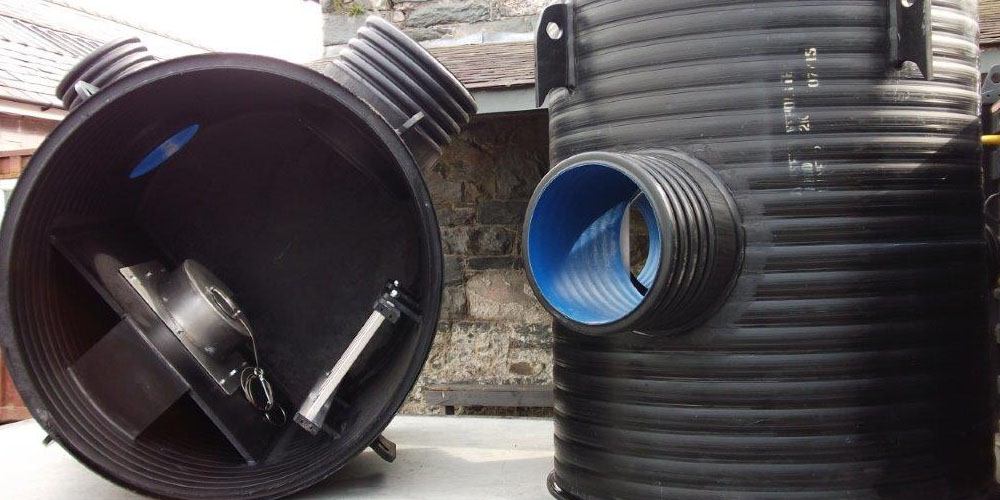Edmond likes to share design blog posts on social media and in online forums. He has a degree in Graphic Design, and he loves working with Adobe Photoshop and Illustrator. In his spare time, Zachary enjoys hiking and camping with his friends.

Plastic manhole chambers are a modern solution to traditional underground chambers made of concrete or brick. Made of high-density polyethylene (HDPE), plastic manhole chambers are a type of underground structure used in the construction of drainage systems, sewage systems, and other utilities.
An hdpe inspection chamber is becoming more and more common in the building sector, especially for use in drainage and wastewater systems. High-density polyethylene (HDPE), a thermoplastic material that is strong, light, and resistant to weather and chemicals, is used to make these chambers.
Where Can A HDPE Plastic Manhole Chamber Be Used?
An HDPE Plastic Manhole Chamber is used in various construction projects to provide access to underground utilities such as sewage systems, drainage systems, and other underground piping applications.
They are commonly used in commercial, industrial, and residential applications where access to these systems is required for maintenance, inspection or repair purposes. Some specific areas where HDPE Plastic Manhole Chambers are commonly used include:
- HDPE plastic manhole chambers are often used in the construction of municipal sewer and water systems, providing access to the piping network for maintenance and repair.
- In industrial settings including chemical processing facilities, refineries, and power plants, plastic manhole chambers are employed.
- They are frequently used to provide access to subsurface utility lines in commercial structures including hospitals, malls, and office buildings.
- Plastic manhole chambers are often used in highway and road construction for access to underground utilities such as electrical and water lines.
- HDPE manhole chambers can be used in wastewater treatment plants as access points to underground pipes and tunnels. They are resistant to chemicals and can withstand the harsh conditions of these facilities.
Advantages of A HDPE Plastic Manhole Chamber
Given their many benefits, plastic manhole chambers are quickly replacing other options as more contractors, engineers, and project managers switch to them. Some of the possible advantages provided by HDPE plastic manhole chambers are:
Durability
Due to durability, plastic manhole chambers are considered the most advantageous. These chambers are constructed from a substance that won’t be harmed by exposure to environmental components including dampness, chemicals, and UV radiation.
Easy Installation
HDPE plastic manhole chamber installation is simple and can be completed fast and effectively. They require less labor and less equipment to move and install because of their lightweight construction.
Cost-Effective
HDPE plastic manhole chambers are very affordable in terms of installation and upkeep costs. Their lightweight construction lowers the expense of shipping and installation, as was already indicated.
Chemical Resistance
HDPE plastic manhole chambers are an excellent option for use in wastewater treatment facilities and chemical processing plants since them are resistant to a variety of chemicals. HDPE manhole chambers are a safe and dependable solution for usage in these situations due to their resistance to chemical deterioration.
Water Tightness
Moreover, HDPE plastic manhole chambers are water-tight, which stops the flow of sewage or other liquids. The water-tight design of HDPE manhole chambers can assist prevent issues and ensure the efficient operation of the sewage system.
Lightweight
Another advantage of HDPE plastic manhole chambers is their lightweight design. Compared to traditional concrete or brick manholes, HDPE manholes are much lighter, making them easier and less expensive to transport and install.
Flexibility
Furthermore flexible, HDPE plastic manhole chambers can tolerate ground movement without breaking or cracking. This is particularly meaningful if there is a lot of seismic activity or unstable soil. HDPE manhole chambers can adapt to the changing in the ground due to their flexibility without compromising the strength of the sewer system.
Conclusion
HDPE plastic manhole chambers can be used in a wide range of applications where underground access points are required. Their versatility, durability, and cost-effectiveness make them an ideal choice for use in wastewater and drainage systems.
Additionally, the ability to customize HDPE manhole chambers to specific project requirements means that they can be designed to fit almost any application.
